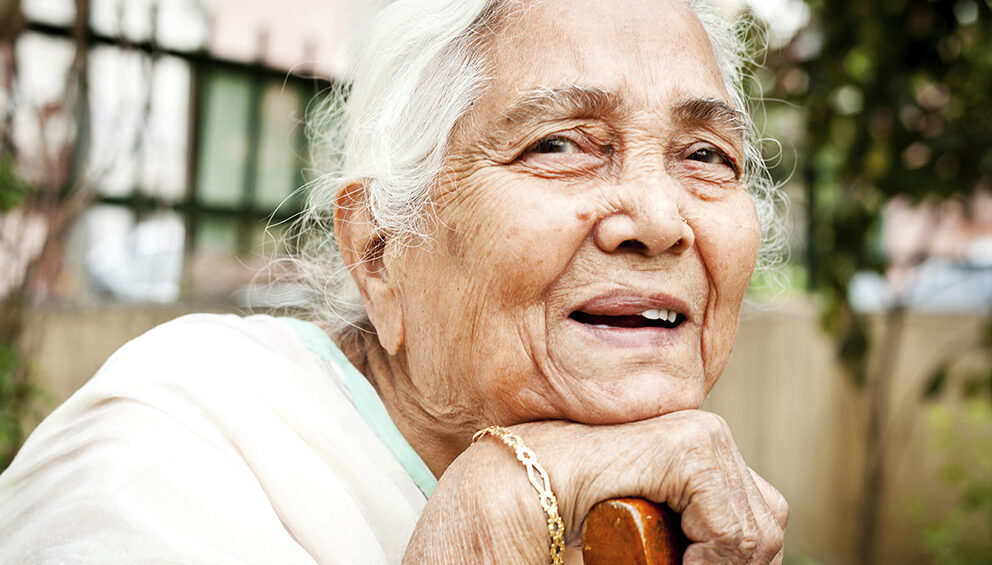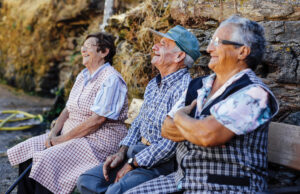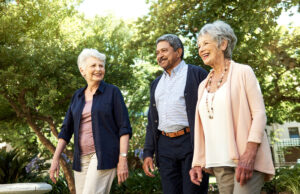JDC Eshel shares aged care interventions in Israel
Three weeks ago, you would have heard from Israel that life was largely back to normal. COVID was seemingly behind us.
And yet within days came an onslaught of rockets that once more had Israel’s residents pinned to their homes and fearing for their lives.
And as with the COVID lockdowns, it was Israel’s elderly who were most vulnerable – confined to their bomb shelters or apartments for an intense eleven days.
Panic enveloped them every time they dared to take a shower, relieve themselves in the bathroom, take a nap on their bed, or visit their fridge for a quick meal. Would they be able to make it to the protected area within the 7, 15, 30 or 45 seconds when the feared siren pierced their home?
If this wasn’t troublesome enough, a violent outbreak of clashes between Jewish and Arab Israeli citizens resulted in a cycle of friction and fear, with residents in neighborhoods of co-existence terrified to leave the security of their homes for fear of being lynched.
Cognizant of the effects this new wave of terror was having on the emotional and physical wellbeing of Israel’s elderly, particularly the 96,000 residing in close proximity to Gaza, JDC Eshel was in daily contact with Ministry of Welfare, the local authorities, and the professional teams providing services in the field.
This past Thursday (20.5.2021), JDC Eshel CEO, Yossi Heymann visited the city of Ashdod where he met with the municipal management and the Home Front Command in order to learn up-close about the challenges of a city in the south of the country facing a continuous onslaught of rockets.
The needs that were described in Ashdod were also reflected in other localities in Southern Israel. It was however noted that the smaller (and weaker) local authorities in this region had greater difficulty in offering reliable solutions for their residents.
The primary needs that were identified as related to the elderly population include:
- Elderly living in unprotected neighborhoods had either relocated permanently into public bomb shelters or were left exposed in their homes due to the practical difficulty of running to public shelters. There is a need to provide short respite vacations for the elderly in these locations to allow them to relax, regain strength and rebuild resilience.
- In some of the southern localities, there is fear of the Arab-Jew internal violence that has rocked the country and which threatens their personal security. In these localities, the elderly are terrified to leave their homes and require psychological support and services provided for them within their homes.
- Welfare workers in the local authorities have continued working day and night together with volunteer teams and the Home Front Command. However there is an additional need for community caseworkers over the coming months to visit the elderly in their homes, help map needs and offer interventions and solutions for emotional and physical support, and to strengthen the older adults’ overall resilience.
- Professional teams tasked with caring for elderly in institutions and within the community were torn between caring for their own families, and the elderly clients/patients they were responsible for. These teams require emotional support and relief.
- Caregivers had difficulty reaching the elderly in their homes, especially those in localities closer to Gaza.
Interventions that JDC Eshel is working to implement
JDC Eshel activated existing remote support services to support the follow services:
- Discussion groups and resilience workshops for dealing with stress and anxiety at JDC Eshel’s Up60+ centers (in collaboration with the Ministry of Social Equality).
- JDC Eshel’s Rehabilitation centers for older adults are utilizing their remote platform to provide resilience building (physical, cognitive, emotional) group activities (in collaboration with the Ministry of Health).
- A care-coordination program for the elderly at extreme social and health risk (in collaboration with the Ministry of Health, the Ministry of Welfare and the National Insurance Institute).
- Providing assistance to caregivers (in collaboration with the Ministry of Welfare).
JDC Eshel has also been mapping and analyzing the needs of the elderly both during and after the emergency situation and is working on offering the following responses:
- Designing workshops for professional staff caring for Jewish and Arab residents in “mixed” nursing homes and geriatric centers.
- Recruiting 44 community caseworkers to work alongside the local authorities and social workers in the 21 regions closest to Gaza, to engage with the elderly, map individual needs and offer suitable interventions, and build resilience.
- Offering day/multi-day respites to the elderly who have been confined to their home.
- Resilience training for professional caregivers in the community and institutions.
- Producing instructional training videos on how to protect oneself, to be produced in multiple languages.
We hope and pray that the current ceasefire will last. In any event, JDC Eshel professionals will continue to work effectively with its partners on the ground to provide for the needs of the elderly who have been physically and emotionally harmed by the recent rocket attacks. For more information about JDC Eshel, visit the website here.






